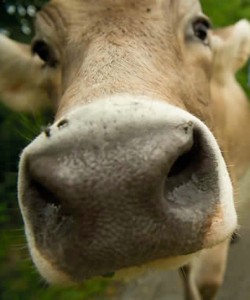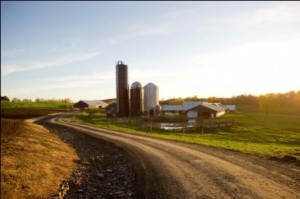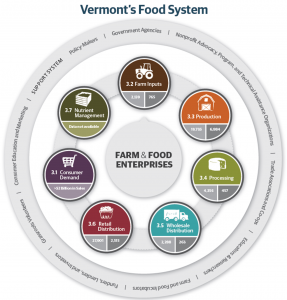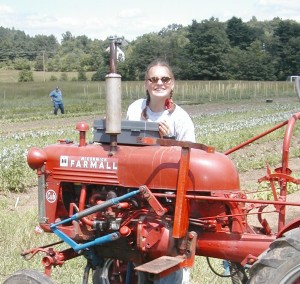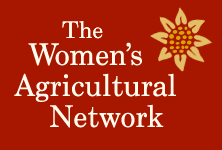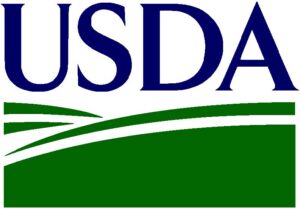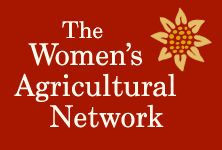How many stomachs does a cow have? Nope, not four! It’s a common misinterpretation: a cow actually possesses one stomach with four chambers. The 37 girls who spent an hour meeting dairy cows and visiting with Vermont 4-H’s livestock educator Wendy Sorrell last week can now confidently answer this question. They also learned to estimate a milking cow’s body weight using a measuring tape, listen to a gurgling rumen with a veterinary stethoscope, and meet the challenge of pouring milk into an eager calf’s mouth.
For thirteen years now, Vermont Works for Women has been bringing students from all over the state together for “Women Can Do!”, an all-day career development conference just for high school girls. This year, over 400 students and teachers gathered at Vermont Technical College to attend almost 50 different hands-on workshops (PDF) in trades and technology.
The “Hello, Cow!” workshop was enriched further by our host and barn guide, Paige Gerhardt, a VTC student in VTC’s new Diversified Agriculture program. The program was designed by a former student along with program director and PhD dairyman Dr Chris Dutton, and started classes in 2010. It was inspiring to observe Paige’s ease and expertise in answering the girls’ questions, whether she was explaining how a cow works or how dairy cows fit into a diversified ag operation.
Some other familiar faces from Vermont agriculture were also there to present workshops: Kristen Mullins, a WAgN blogger and coordinator of UVM Extension 4-H’s Youth Farm Safety Project, previously worked at VWW and still serves on the board. She attended Women Can Do! to offer a nail-pounding workshop and contest, and to rev up the crowd!
Rachel Schattman is not only the Local Foods Coordinator at UVM’s Center for Sustainable Agriculture, she’s also a pesto farmer. In her workshop, girls made their own pesto and discussed the resources, options, and questions in starting your own value-added farm business.
All the workshops at Women Can Do offered real-world career development information and hands-on activities. Girls said they had a hard time deciding between, for instance: chainsawing up some log “cookies” to take home, doing a little welding, creating a website, operating a skid steer, or making chocolate.
Some of the workshops might not seem very agricultural, but if you look through the lens of the whole food system? Heck yes. This exciting new area is helping strengthen the logistics of our interconnection when it comes to producing food sustainably. There are opportunities to participate at every step: perhaps you produce heirloom seed varieties or body-saving ergonomic tools; maybe you make use of resources like business advising and farm planning; you might make value-added products, work on equipment, or focus on soil.
Whatever your expertise, there’s probably a girl interested in learning it! More girls are entering Career and Technical Education classrooms, but many courses of study are still classified as “nontraditional” by gender or other demographic categories, meaning that less than 25% of the enrolled students are anybody besides those who have traditionally taken those courses (think Diesel Mechanics vs Culinary programs). So what can you do to help young women get a taste of life in agriculture?
If you’re a sociable kind of farmer, track down your local Farm to School program and let them know you’re willing to host farm visits. (October is Farm to School month, so there is likely a harvest dinner or some other fun event happening near you!) More of a lone wolf, or too busy? Hosting an on-farm apprenticeship or a “co-op” experience with a Career and Technical Education center could garner extra hands while allowing you to share the rich rewards of real labor.
Many of the skills and tools that girls picked up for the first time last Thursday are things that you use every day, as a woman who Can Do farming. Do you remember who first taught you how to wield a hoe, feed a horse, keep planting records, or test an electrical connection? Keep an eye out for “teachable moments,” and pass it on!

